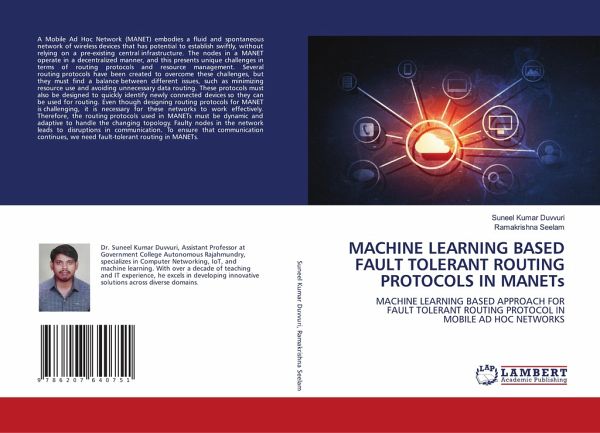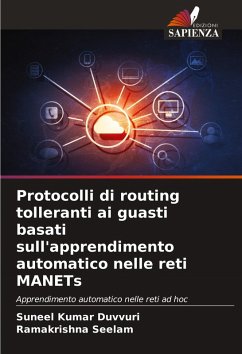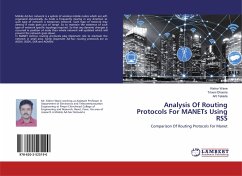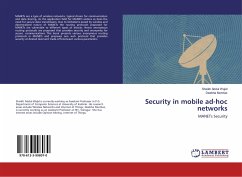
MACHINE LEARNING BASED FAULT TOLERANT ROUTING PROTOCOLS IN MANETs
MACHINE LEARNING BASED APPROACH FOR FAULT TOLERANT ROUTING PROTOCOL IN MOBILE AD HOC NETWORKS
Versandkostenfrei!
Versandfertig in 6-10 Tagen
45,99 €
inkl. MwSt.

PAYBACK Punkte
23 °P sammeln!
A Mobile Ad Hoc Network (MANET) embodies a fluid and spontaneous network of wireless devices that has potential to establish swiftly, without relying on a pre-existing central infrastructure. The nodes in a MANET operate in a decentralized manner, and this presents unique challenges in terms of routing protocols and resource management. Several routing protocols have been created to overcome these challenges, but they must find a balance between different issues, such as minimizing resource use and avoiding unnecessary data routing. These protocols must also be designed to quickly identify new...
A Mobile Ad Hoc Network (MANET) embodies a fluid and spontaneous network of wireless devices that has potential to establish swiftly, without relying on a pre-existing central infrastructure. The nodes in a MANET operate in a decentralized manner, and this presents unique challenges in terms of routing protocols and resource management. Several routing protocols have been created to overcome these challenges, but they must find a balance between different issues, such as minimizing resource use and avoiding unnecessary data routing. These protocols must also be designed to quickly identify newly connected devices so they can be used for routing. Even though designing routing protocols for MANET is challenging, it is necessary for these networks to work effectively. Therefore, the routing protocols used in MANETs must be dynamic and adaptive to handle the changing topology. Faulty nodes in the network leads to disruptions in communication. To ensure that communication continues, we need fault-tolerant routing in MANETs.














